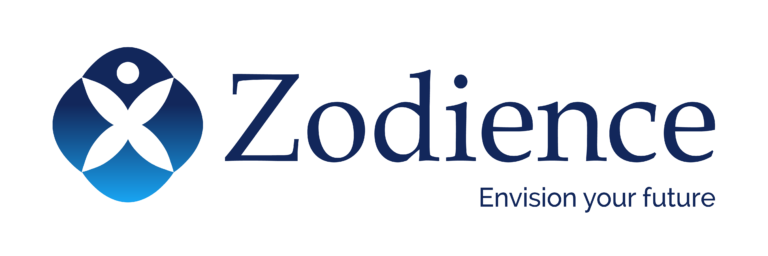
Key to Mastering your Resume
Important Hard and Soft Skills
Your resume is your gateway to getting hired. It’s the first impression an employer will have of you, and it’s your chance to showcase your skills, experience, and qualifications. One of the essential parts of any resume is the skills section, where you list the skills that make you a strong candidate for the job. This article will discuss the essential skills to put on a resume and the differences between hard and soft skills.
What Are Hard Skills?
Hard skills are technical skills specific to a particular job or industry. They are measurable and quantifiable and often acquired through education, training, orexperience. Examples of hard skills include:
- Computer programming
- Data analysis
- Graphic design
- Project management
- Accounting
- Marketing
Based on specific knowledge or expertise, these skills are usually easy to quantify and demonstrate. When listing your hard skills on your resume, use action verbs that show how you have applied those skills in your previous roles. For example:
- Developed software using Java and Python
- Analyzed data using SQL and Excel
- Designed marketing campaigns using Adobe Creative Suite
- Managed projects using Agile methodology and JIRA
- Performed accounting tasks using QuickBooks
What Are Soft Skills?
On the other hand, soft skills are personal attributes not specific to a particular job or industry. They are often called “people skills” or “emotional intelligence.” Examples of soft skills include:
- Communication
- Leadership
- Teamwork
- Problem-solving
- Adaptability
- Time management
Based on personal traits and qualities, soft skills are more difficult to quantify and demonstrate. However, they are just as important as hard skills in many industries, particularly those that require frequent interaction with customers or clients. When listing your soft skills on your resume, use examples demonstrating how you have applied those skills in your previous roles. For example:
- Communicated effectively with team members and stakeholders to ensure project success
- Led cross-functional teams to deliver projects on time and within budget
- Collaborated with colleagues to solve complex problems and improve processes
- Adapted quickly to changing priorities and deadlines to meet business needs
- Managed time effectively to meet deadlines and achieve goals
Why Hard Skills are essential for Your Resume
Hard skills are essential in many industries, particularly those that require specific technical expertise. For example, a software engineer must have strong coding skills, while an accountant must have a solid understanding of financial analysis and reporting. When you list your hard skills on your resume, you demonstrate to potential employers that you have the technical expertise required to succeed.
However, it’s important to remember that more than hard skills are needed. Even if you have all the technical expertise, you still need to communicate effectively, work well with others, and solve problems creatively. That’s where soft skills come in.
Why Soft Skills are essential for Your Resume
Soft skills are becoming increasingly important in many industries, particularly those involving frequent customer or client interaction. For example, a salesperson must communicate effectively with customers, while a customer service representative must be able to solve problems quickly and empathetically.
When you list your soft skills on your resume, you demonstrate to potential employers that you have the personal attributes required to succeed. Soft skills are fundamental in healthcare, education, and hospitality industries, where employees must interact with people from diverse backgrounds and with varying needs.
The Essential Skills to Put on Your Resume
So, what are the essential skills to put on your resume? The answer will depend on the job you’re applying for and your industry.
Interpersonal Skills
Interpersonal skills are also known more commonly as people skills or soft skills. They are the skills that help you communicate and interact effectively with others personally and professionally. Interpersonal skills are essential for any job, as they help to build relationships with clients, colleagues, and managers.
Some of the most important interpersonal skills to put on your resume include:
Communication Skills: Communication is a vital skill in any profession. It is the ability to express your ideas and thoughts clearly, verbally, and in writing. Good communication skills help you to explain your point of view, understand the viewpoints of others, and avoid misunderstandings.
Active Listening Skills: Active Listening is a critical skill for any job. It involves entirely focusing on the speaker, asking clarifying questions, and responding appropriately. Good listening skills help you to understand the needs of others and build strong relationships.
Teamwork Skills: Teamwork is an essential part of most jobs. It involves working collaboratively with others to achieve common goals. Good teamwork skills include sharing ideas, giving and receiving feedback, and working towards a common goal.
Conflict Resolution Skills: Conflict is normal in any workplace, and good conflict resolution skills are essential. It involves identifying the issue, communicating effectively with all parties, and finding a mutually agreeable solution.
Emotional Intelligence: Emotional intelligence is understanding and managing your emotions effectively. It is essential for building relationships, managing conflicts, and achieving personal and professional success.
Leadership Skills: Leadership skills are essential for those seeking management roles. It involves inspiring and motivating others, setting clear goals, and delegating responsibilities effectively.
Hard Skills vs. Soft Skills
Hard skills and soft skills are two different types of skills that you can put on your resume. Hard skills are technical skills specific to a particular job or
industry. Soft skills are interpersonal skills that are essential for working effectively with others.
Hard skills are often learned through education, training, or on-the-job experience. Examples of hard skills include:
Computer Skills: These are technical skills specific to using computers, software programs, and other digital technologies.
Language Skills: These are skills related to speaking, writing, and reading in a particular language.
Accounting and Finance Skills: These are financial analysis, budgeting, and bookkeeping skills.
Marketing and Advertising Skills: These are skills related to market research, advertising campaigns, and sales.
Engineering and Technical Skills: These are skills related to designing, building, and testing products, systems, and structures.
Healthcare and Medical Skills: These are skills related to patient care, medical research, and medical technology.
On the other hand, soft skills are personal attributes that help you interact effectively with others. Soft skills are often developed through life experience, personal growth, and self-awareness.
Examples of soft skills include:
Communication Skills: These are skills related to the ability to convey ideas, thoughts, and information to others clearly and concisely.
Interpersonal Skills: These are skills related to working well with others, including team building, active Listening, and conflict resolution.
Leadership Skills: These are skills related to inspiring and motivating others, delegating responsibilities, and leading by example.
Emotional Intelligence: These are skills related to the ability to understand and manage emotions, both your own and those of others.
Creativity is thinking outside the box and creating innovative solutions to problems.
Time Management: This is managing your time effectively and prioritizing tasks to meet deadlines and achieve goals.
The Importance of Highlighting Both Hard and Soft Skills
When creating a resume, it is essential to understand and differentiate between hard skills and soft skills and how to showcase both effectively.
Hard skills are specific, measurable, technical abilities that can be learned through education or training and are typically related to a specific job or industry. Hard skills may include proficiency in a particular programming language, certification in specific software, or experience with a unique tool or equipment. Hard skills are typically highlighted in a resume’s skills or qualifications section.
On the other hand, soft skills are less tangible interpersonal qualities that are difficult to quantify, such as communication skills, leadership abilities, and emotional intelligence. These skills are typically highlighted in a resume’s work experience or achievements sections through examples of how they have been applied in past roles. Soft skills are often considered just as important as hard skills, as they are critical for success in any part, regardless of industry or position.
One effective way to showcase hard and soft skills on a resume is through specific, measurable examples. Hard skills may include completing a certification or training program or completing a project using a particular tool or technology. Soft skills may include examples of how you have successfully collaborated with team members, led a project or team to success, or provided exceptional customer service.
Another way to showcase soft skills is through the use of action verbs, such as “collaborated,” “mentored,” or “facilitated.” These verbs help convey the specificaction taken and highlight the soft skill being demonstrated.
Conclusion
In today’s competitive job market, having a well-organized resume that effectively showcases your skills and qualifications is essential. By highlighting your most important hard and soft skills, you can stand out to potential employers and increase your chances of landing your dream job. Remember to tailor your resume to each specific job application, using keywords and phrases from the job description to ensure your skills and experience align with the position’s requirements. With a strong resume showcasing your skills and qualifications, you can set yourself up for success in any industry or role.
1 comment
Comments are closed.







Hi, this is a comment.
To get started with moderating, editing, and deleting comments, please visit the Comments screen in the dashboard.
Commenter avatars come from Gravatar.